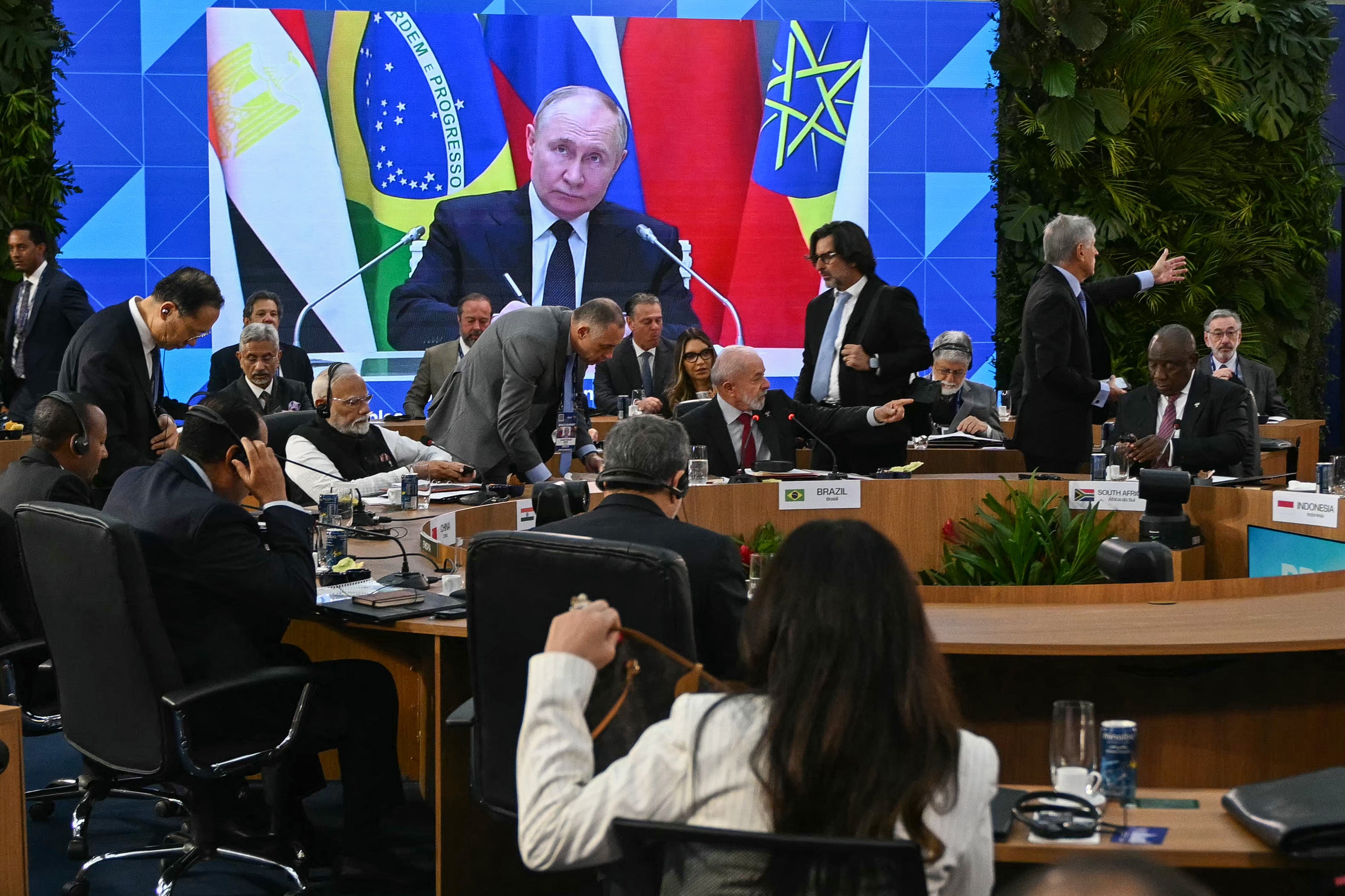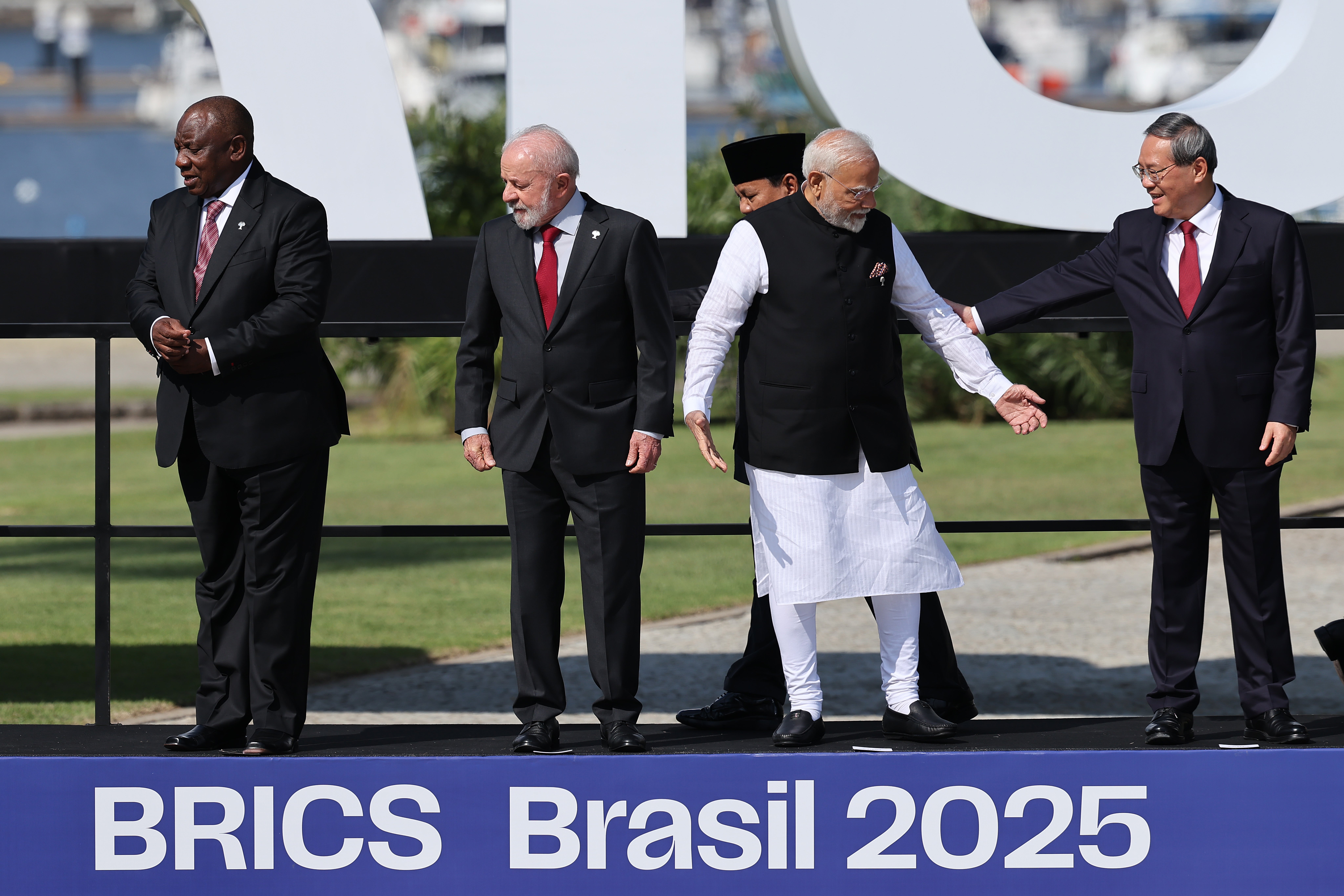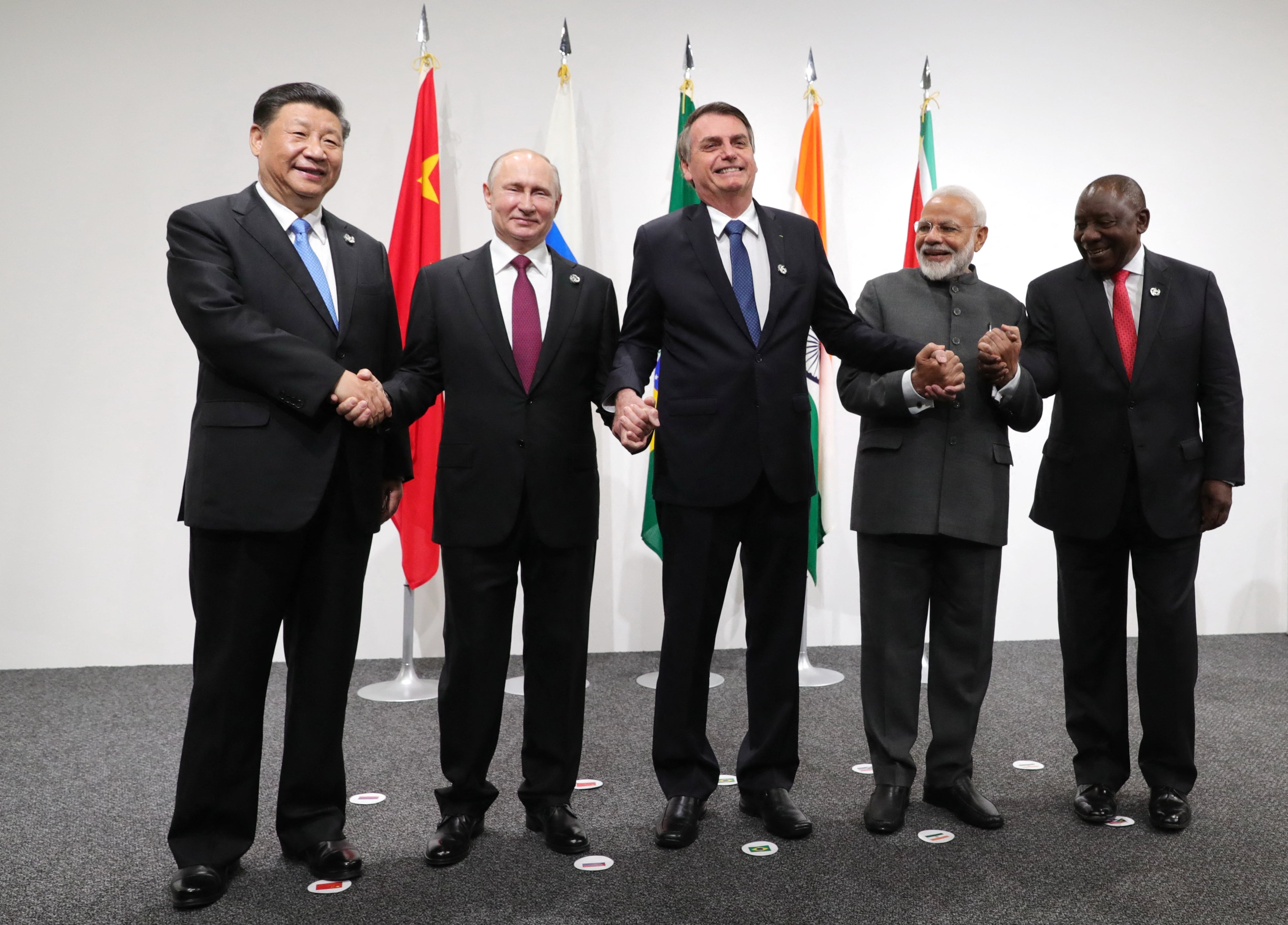Donald Trump warned on Sunday that any country aligning with what he described as the “anti-American” policies of the Brics bloc would face an additional 10 per cent tariff.
“There will be no exceptions to this policy,” the US president declared on his Truth Social platform without specifying any nation or policy.
He also did not clarify what he meant by “anti-American” policies, although he previously cautioned Brics against launching a new currency or supporting any alternative to the US dollar.
On Tuesday, Mr Trump alleged, without providing any evidence, that the bloc was designed to undermine America and erode the dollar’s status as the world’s reserve currency, vowing to prevent that outcome. “And that’s okay if they want to play that game, but I can play that game too,” he said.
Mr Trump’s remarks came shortly after the Brics summit opened in Brazil and member states issued a declaration criticising the use of unilateral tariffs and denouncing last month’s American and Israeli military attacks on Iran as serious violations of international law.
Mr Trump unilaterally imposed heavy tariffs on almost all major economies in early April but suspended their enforcement for 90 days to allow time for dealmaking. The 90-day pause expires on Wednesday.
Brics, an influential non-Western economic bloc, held its 17th summit over the weekend in Rio de Janeiro where it focused on advancing peace and international cooperation. Yet, several points in the joint statement appeared to indirectly criticise the US and its ally Israel despite neither being named.

In a section titled “Strengthening Multilateralism and Reforming Global Governance”, Brics leaders expressed concern about the growing use of tariffs in global trade, seemingly taking aim at Mr Trump, who has repeatedly threatened trading partners with sweeping levies as leverage for more favourable trade terms and policy concessions.
“We voice serious concerns about the rise of unilateral tariff and non-tariff measures which distort trade and are inconsistent with WTO rules,” the Brics leaders said, referring to the World Trade Organisation.
They said that such measures could “reduce global trade, disrupt global supply chains, and introduce uncertainty into international economic and trade activities, potentially exacerbating existing economic disparities”.
The leaders also used the declaration to condemn the recent military strikes on Iran, one of the bloc’s member states.
“We condemn the military strikes against the Islamic Republic of Iran since 13 June 2025, which constitute a violation of international law,” they said, adding that “peaceful nuclear facilities” had been targeted.
Israel attacked Iran on 13 June, launching a 12-day conflict. Nine days later, the US joined in on Israel’s side and bombed three of Iran’s nuclear facilities.
While both Washington and Tel Aviv defend the attacks as essential to halting Iran’s alleged pursuit of nuclear weapons, Tehran continues to deny any such ambitions.

Brics started out as a coalition of major emerging economies – Brazil, Russia, India, and China – before expanding to include South Africa and, more recently, Egypt, the UAE, Ethiopia, Indonesia and Iran.
While a Brazilian Brics website lists Saudi Arabia as a member, the kingdom’s foreign minister clarified in January it was still considering the invitation and had not formally joined.
Seen as a counterweight to the G7 group of advanced economies, Brics now accounts for a quarter of global GDP and about half of the world’s population.
Mr Trump’s unease with Brics arises from its growing challenge to US dominance in global trade and finance, observers note, and especially its drive to reduce dependence on the dollar. With China and Russia at the helm, Brics signals a shift towards a multipolar world, one that could erode the economic and geopolitical influence the US has long wielded.
By branding their policies “anti-American”, Mr Trump is both pushing back against that shift and using the rhetoric to stoke nationalist sentiment at home.
“Trump has a reason to worry,” Alicia Garcia-Herrero, senior fellow at the Brussels-based think tank Bruegel, told DW. “The Brics is very clearly anti-Western. Part of its mantra is to change the global order.”
Brazilian president Luiz Inácio Lula da Silva responded to Mr Trump’s tariff threat by saying the world no longer needed an “emperor”.
“The world has changed. We don’t want an emperor,” he told reporters. “This is a set of countries that wants to find another way of organising the world from the economic perspective. I think that’s why the Brics are making people uncomfortable.”
“We will not accept any complaints about the Brics summit,” he added. “We do not agree with the US president insinuating he’s going to put tariffs on Brics countries.”
Russia also pushed back against Mr Trump’s latest rhetoric, insisting that Brics was not aimed at undermining any country.
“We have indeed seen such statements by President Trump, but it is very important to note here that the uniqueness of a group like Brics is it’s a group of countries that share common approaches and a common worldview on how to cooperate based on their own interests,” presidential spokesperson Dmitry Peskov said on Monday. “And this cooperation within Brics has never been, and will never be, directed against any third countries.”

China’s foreign ministry weighed restating its opposition to the use of tariffs as a means of coercion in international relations. “China has been very clear about its position on US tariff hikes. Trade wars and tariff wars have no winners. Protectionism will lead nowhere,” spokesperson Mao Ning said.
Another key Brics member, South Africa, reassured Washington that the bloc was not seeking confrontation. “I became aware of what President Trump tweeted and I think there needs to be greater appreciation of the emergence of various centres of power in the world,” president Cyril Ramaphosa said. “And this should be seen in a positive light, rather than in a negative light.”
The timing of Mr Trump’s post – just as the 90-day pause on tariff measures was set to expire – suggested a hardening of his protectionist stance amid faltering trade talks.
Tensions between Mr Trump and Brics have been simmering for months. In November, the US president lashed out at the bloc after several member states suggested reducing the US dollar’s dominance in global trade. Framing it as an economic threat, Mr Trump warned that any country attempting to sideline the dollar would risk losing access to what he called the “wonderful US economy”.

“The idea that the Brics countries are trying to move away from the dollar while we stand by and watch is over,” Mr Trump warned. “We require a commitment from these countries that they will neither create a new Brics currency, nor back any other currency to replace the mighty US dollar, or they will face 100 per cent tariffs, and should expect to say goodbye to selling into the wonderful US economy.”
Brics had stepped up efforts to reduce reliance on the US dollar by encouraging trade in local currencies, especially amid Western sanctions and tariffs.
Russia and China are leading this “dedollarisation” push, with India also using alternative currencies like the yuan, ruble and dirham for Russian oil payments.
But plans for a common gold-backed currency appear stalled due to internal divisions. India and Brazil prefer boosting local currency trade instead of adopting a shared one.
In spite of these ambitions, Brics accounts for only 3 per cent of global trade and the US dollar remains dominant, used in 90 per cent of transactions and 59 per cent of global reserves. “Dedollarisation”, economists say, is still a distant prospect.
Hegseth did not get okay from Trump for Ukraine weapons pause, report says
UK workforce exposed if global trade war intensifies, Bank warns
Ukraine war latest: Trump ‘blindsided’ by Pentagon decision to halt weapons to Kyiv
Talks to finalise US steel tariff exemption ongoing as deadline due to pass
PETA sues American Kennel Club over breeding standards for French bulldogs
Human rights court to make first ruling over Russia’s responsibility for Ukraine war







